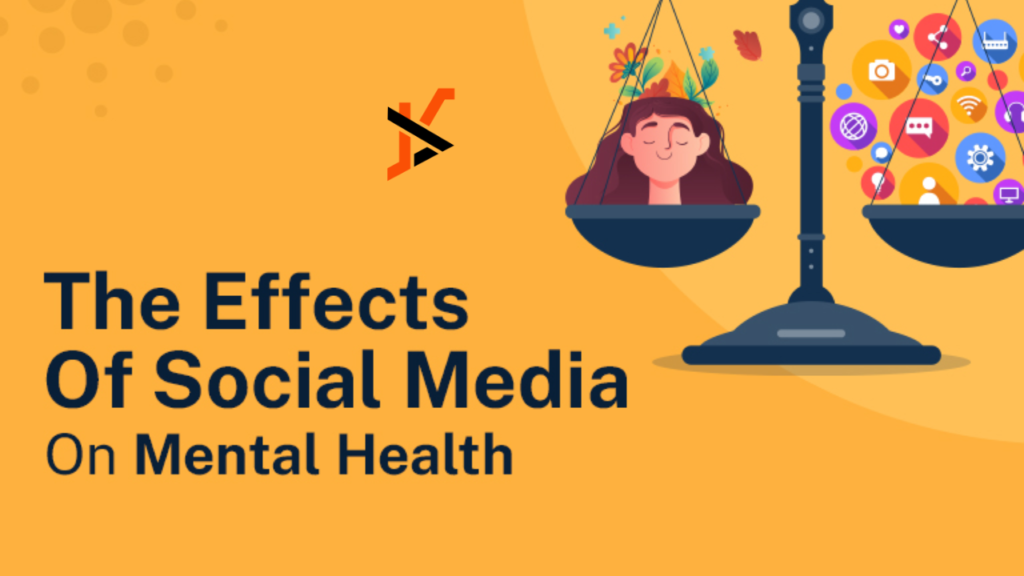While social media platforms offer numerous benefits, such as staying connected with friends and family, accessing information, and expressing ourselves, there is growing concern about their potential impact on mental health. Numerous academic studies have explored the relationship between social media usage and various mental health issues, shedding light on this complex and multifaceted topic. Of course, social networks can be very useful, for example, when looking for a specialized writing service to send a “help me with my homework” request and take a little break from academic tasks.
Researchers have found a correlation between excessive social media use and an increased risk of developing mental health problems, including depression, anxiety, and low self-esteem. A study conducted by the University of Pennsylvania revealed that individuals who limited their social media usage to 30 minutes per day experienced significant improvements in their overall well-being, including reduced loneliness and depression symptoms, compared to those who continued with their regular usage patterns.
Another study published in the Journal of Social and Clinical Psychology examined the link between social media use and psychological well-being among young adults. The findings indicated that individuals who reported higher levels of social media engagement were more likely to experience symptoms of depression and anxiety. This suggests that the constant exposure to curated and idealized versions of others’ lives on social media platforms may contribute to feelings of inadequacy and dissatisfaction with one’s own life.
The effects of social media addiction on mental health
Social media addiction, characterized by excessive and compulsive use of these platforms, can have severe consequences for mental health. A study published in the Journal of Behavioral Addictions explored the relationship between social media addiction and mental health issues among college students. The researchers found that individuals who exhibited signs of social media addiction were more likely to experience symptoms of depression, anxiety, and stress. Additionally, these individuals reported lower levels of self-esteem and life satisfaction.
Another study conducted by researchers at the University of Pittsburgh examined the neurological effects of social media addiction. The findings revealed that individuals with social media addiction exhibited similar brain patterns to those observed in individuals with substance addictions. This suggests that social media addiction may have a profound impact on the brain’s reward and pleasure centers, potentially contributing to mental health issues.
The role of cyberbullying on social media platforms in mental health issues
Cyberbullying, the act of harassing or intimidating others through electronic means, has become a significant concern on social media platforms. This form of bullying can have severe consequences for mental health, particularly among young individuals who are more vulnerable to peer pressure and societal expectations.
A study published in the Journal of Adolescent Health investigated the impact of cyberbullying on mental health among adolescents. The researchers found that individuals who experienced cyberbullying were more likely to report symptoms of depression, anxiety, and low self-esteem. Additionally, these individuals were at an increased risk of engaging in self-harm behaviors and suicidal ideation.
The influence of social media on body image and self-esteem
Social media platforms have become a breeding ground for unrealistic beauty standards and idealized body images. This constant exposure to curated and often edited images can have a significant impact on individuals’ body image and self-esteem, particularly among young people who are more susceptible to societal pressures.
A study published in the Journal of Eating Disorders examined the relationship between social media use and body dissatisfaction among college-aged women. The researchers found that women who spent more time on social media platforms were more likely to experience body dissatisfaction and engage in disordered eating behaviors. This suggests that the constant exposure to idealized body images on social media may contribute to negative body image and unhealthy eating habits.
Strategies for using social media in a healthy and positive way
While social media platforms can have negative impacts on mental health, it is important to recognize that they can also be used in a healthy and positive way. By implementing strategies to promote mindful and balanced use, individuals can mitigate the potential risks and harness the benefits of social media.
- Set boundaries and limits: Establish clear boundaries and limits for social media usage. This may include setting specific times for checking social media, limiting the number of platforms used, or implementing screen-free periods throughout the day.
- Practice mindful scrolling: Be mindful of the content you consume on social media platforms. Unfollow or mute accounts that promote unrealistic beauty standards, negative self-talk, or unhealthy behaviors.
- Engage in real-life social interactions: While social media can provide a sense of connection, it should not replace face-to-face interactions. Make an effort to nurture real-life relationships and engage in activities that promote social connection and emotional fulfillment.
- Seek support when needed: If you find yourself struggling with negative emotions or behaviors related to social media use, seek support from a mental health professional or trusted individual. They can provide guidance and strategies to help you develop a healthier relationship with social media.
- Take breaks and practice self-care: Regularly take breaks from social media and engage in activities that promote self-care, such as exercise, mindfulness practices, or hobbies you enjoy. This can help to reduce stress and promote overall well-being.
By implementing these strategies, individuals can cultivate a more balanced and mindful approach to social media use, mitigating the potential risks to mental health and fostering a healthier relationship with these platforms.
Final Thoughts
While social media platforms offer numerous benefits, it is crucial to recognize the potential risks and implement strategies to promote mindful and balanced use. By fostering a healthier relationship with social media, individuals can mitigate the negative impacts on mental health and cultivate overall well-being.

